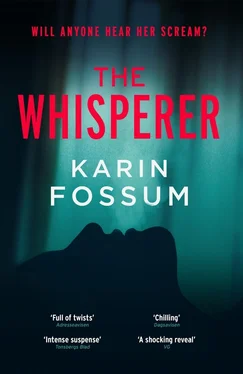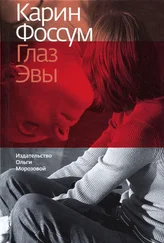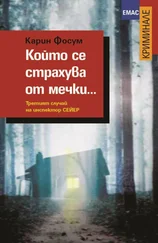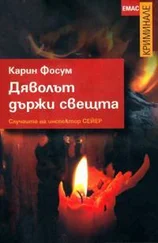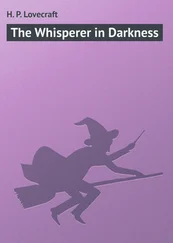Now she was standing by the window thinking. It was midnight, and she was about to go to bed. She decided that she was not going to open it, that from now on she would close the world out and protect herself against everything, even nature. She arranged the curtains, puffed up her pillow and crept in under the duvet. But after she had lain awake for some time, she realised that the unfamiliar silence made her edgy. She was used to hearing cars passing every now and then, or a kind of universal hum. So she opened the window again and looked down towards the road to see if anyone was there. Kirkelina was still, and the Teigens’ house stood empty and dark. She could not see Olaf’s house from this side, or Irfan’s shop. But the Thai family would move in soon enough and then she would have neighbours again. She lay down with her face to the wall. The cool air calmed her. Of course she had to have the window open. It was nonsense that she should change her habits because of some ridiculous messages from an anonymous idiot. And yet she was constantly plagued by questions. What would the third message say? She would no doubt receive one. She sat up in bed, gathered the duvet around her and listened to the night. She thought about how big the world was, seven billion people, cars, boats and planes, buses and trains, a deafening, thundering spectacle. But she heard nothing. That was strange. Where were they all, what were they doing, how could her little house on Kirkelina be so quiet, even if it was night? Did she live in her own little bubble? She curled up again and tried to sleep, closed her eyes tight. Had a firm word with herself, that’s enough now, Ragna. The cold draught from the window sent a shiver down her spine.
She woke much later and immediately thought that her alarm clock had not rung and she had slept in. She raised herself up onto one elbow, only to see that it was three in the morning. It was stiller and darker than ever before. She was wide awake. The idea that she might fall asleep again seemed impossible, she did not feel in the slightest bit tired or heavy, but she did not want to get up at this time of night. So she lay there and listened. Something must have woken her, something outside, an animal perhaps, or a car — after all, the window was open. Or she had been woken by something inside her, a dream maybe, though she could not remember having a dream. Whatever the case, the fact was that she had always slept well, and it was rare for her to wake in the middle of the night. It must mean something. She pulled the duvet to one side and with some reluctance made her way to the bathroom. She did not need to go there, but she had to do something, walk around a bit, think some thoughts. She turned on the light over the mirror and stared at her washed-out face. The scar on her throat was particularly visible in the harsh light, like a red, twisting worm. She was at a loss. Should she go back to bed, or should she go into the kitchen and make a cup of tea, sit in the chair by the window, let time tick by until morning?
She chose bed. She lay there thinking about Rikard Josef, who patrolled the quiet corridors all day long, making sure the guests were happy. Or he stood in reception, ready to help sort out any problems, however big or small, always polite, obliging and correct. And here she was, alone, sleepless and without a voice. Even though she had carried him everywhere as a baby, even though she had given him everything and always looked after him, he had chosen to leave her. No, she turned over in bed, that was not what he had done. He had simply chosen a career in another country. He had followed his ambitions. And there was no room for her in the new life that he had built for himself, which took up all his time and energy. What did she know, little Ragna Riegel who was a shop assistant in Europris, with its horrible nylon overalls and handheld pricing machines, and easy, undemanding tasks, what did she know about working in a five-star hotel with guests from all over the world? Nothing at all. He was of course totally absorbed by his work, he had an enormous responsibility, and lots of people to please, and some of them would complain. Perhaps they complained for no reason, but he had to smile all the same, smile and smile. And the considerable geographical distance between them had only served to widen the gap. Maybe he did not have much free time, and when he did, he did not want to spend it sitting on a plane. But she found comfort in one thing. Not once had he turned against her or behaved in a way that might suggest that he was bitter or had felt rejected. None of the Christmas cards had ever contained anything other than a friendly greeting. She got out of bed again, pulled the red curtains to the side. To her great surprise, she saw that there was a light on in the Teigens’ house. She found it hard to understand. The house had been dark when she went to bed. Surely the Thai family had not got there after midnight and were now wandering through the empty house. She stood there for a while watching, because she thought that sooner or later she might see a shadow in one of the windows. Or something else, that the light might go off again, or more lights come on. She could not see a car by the house, and the external light was on, so she would have seen if there was one parked outside. Someone had come on foot. Then it struck her, someone had come to check the house was secure, of course. Still no shadows in the lit house. What kind of people were going to move in? And would they keep an eye on her home, just as she would on theirs? She closed the curtains and returned to bed. The idea that someone was walking around in the empty house at this time of night disturbed her for some time.
Audun appeared one day and was going to work full-time. He did not need any training as he had worked in a building materials warehouse for a couple of years, and was quick, efficient and precise. His thin beard was plaited and dangled under his chin like a piece of rope; he often tugged at it as he moved around. His hair was gathered up into a topknot. When he arrived in the morning, it was tight and shiny like a chestnut, but in the course of a shift it started to slip down towards his neck, slowly loosening and looking more and more like a bird’s nest. He had a cross hanging from his ear. Audun never spoke unless it was necessary, and had learned the same techniques as Ragna when it came to keeping people at arm’s length. He smiled, nodded and carried on.
Ragna felt heavy-headed all day. She was not used to having problems with sleep, and she was so tired that everything was spinning. When the shift was finally over, she walked quickly to the bus stop. The air was raw and a mist was falling with the dusk. The lamp posts and signs looked like they were hovering above the ground. She spotted Audun some way ahead of her, walking hunched over. He did not wait for her, but she was fine with that. She mused about what he was going home to. She could not imagine he had a wife and children, he was only in his twenties. She guessed he lived in a studio flat and spent most of his time outside work on the Internet or listening to music. Black metal or something like that. It was just the two of them in the dusk, the one aware of the other, but each staying behind their own wall. These walls could of course be broken down, but they were following unspoken rules.
Ragna let him get onto the bus first. And as a result he sat down on her seat, the third to the left, and she was not prepared for that. There were lots of empty seats, but he chose hers. He made himself comfortable, leaned in towards the window as she always did. She was so taken aback that she just stood there in the aisle, unable to choose anywhere else. This was a new anxiety in her life. That he intended to take her seat every time. That he might also feel a sense of belonging, a feeling that he was in the perfect place. She sat down in a seat on the other side of the bus, where her body bristled with discomfort. She sat there looking at him. His strange hairdo looked silly. From the back, one might mistake him for a girl, with a long, white neck. She wondered if he let his hair down when he went to bed at night, and what he looked like then. When she glanced over her shoulder, she saw there were five other passengers sitting towards the back of the bus, and there were four in front of her. So there were ten of them, including her. Plus the driver, he was the eleventh. They were all going to die. And they all knew it, but you would not know to look at them. Two girls were speaking in hushed voices, heads close together; another was tapping away on a mobile phone. It looked like Audun was listening to music; he certainly had his earphones in, she could see the white wire. Why was death not visible in these fragile bodies, in the autumnpale faces, where had they all hidden it? Death was dark, all-encompassing, a burden, but none of them seemed to be carrying anything. The driver, the eleventh of them, drove the heavy bus through the darkening, misty streets. She could not see his face, and she had not looked at him when she got on. She remembered she had once read something by Edgar Allan Poe, possibly, about an omnibus that took all the passengers to the kingdom of death. Without knowing the final destination, they had all got on and found themselves a seat, only to be slowly and surely transported into another dimension. What if that was the case now? What if the driver, whose back was all they could see, was driving to the last stop from where they would never return?
Читать дальше
